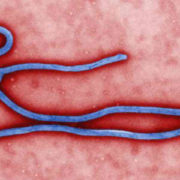THERE’S a link between gum disease and breast cancer for middle-aged and older women, according to a new study.
The report, published in the journal Cancer Epidemiology, Biomarkers and Prevention, found that women with gum disease are 14 percent more likely to develop breast cancer.
Researchers from the University of Buffalo in New York analyzed data on about 73,000 post-menopausal women enrolled in the Women’s Health Initiative Observational Study who did not have breast cancer.
About 25 percent of participants said they had periodontal disease, a chronic inflammation and infection of the gum tissue around the base of the teeth. The condition is linked to stroke, diabetes, heart disease, and certain cancers.
About six-and-a-half years after the study began, scientists followed up with the women and found that more than 2,100 had been diagnosed with breast cancer.
Previous studies have found that the effects of periodontal disease vary depending on whether an individual smokes, a factor researchers accounted for in the study.
“We know that the bacteria in the mouths of current and former smokers who quit recently are different from those in the mouths of non-smoker,” said lead author Jo Freudenheim, distinguished professor in the Department of Epidemiology and Environmental Health at the University of Buffalo’s School of Public Health and Health Professions, according to Reuters.
The risk increase for developing breast cancer was most noticeable in women who smoked cigarettes or had quit within the last 20 years and had gum disease: they were found to have a 36 percent higher risk of the cancer.
“We don’t know if it’s casual, we need to keep that in mind,” Freudenheim said.
Women who smoked had a 32 percent higher chance of developing the cancer if they had periodontal disease, although the association was not statistically significant; those who never smoked or had stopped more than 20 years ago had a 6 and 8 percent risk, respectively, if they had gum disease.
“It could be that periodontal disease means there’s kind of a general inflammation in the body,” Freudenheim said. “Inflammation is related to a number of cancers and strokes and heart diseases, so it could be that chronic inflammation is causing both.”
Scientists also suggested that bacteria from gum disease may enter the body’s circulation and affect breast tissue. However, the report said more research is required to confirm a causal link.
Gerard Linden, a professor of periodontology at the Center for Public Health at Queen’s University Belfast in Northern Ireland who was not involved in the study, told Reuters that changes in sex hormone levels due to menopause may have an effect on how breast tissues respond to a stimulus like bacteria.
The study did come with some limitations, including that women self-reported their periodontal disease. Furthermore, it involved women already enrolled in a long-term health survey and were more likely to be more health-conscious than others, as well as more likely to be getting regular dental and medical care.







